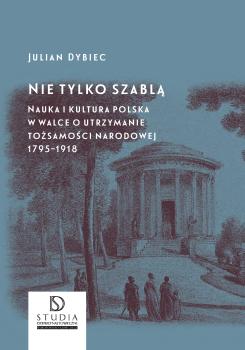Nie tylko szablą : nauka i kultura polska w walce o utrzymanie tożsamości narodowej
Keywords:
Polish culture, national identity, time of partitionsSynopsis
In the 1930s, with the Russians in his mind in the first place, Adam Mickiewicz wrote about Poland’s partitioning powers, “destroying all monuments of literature and art, eradicating history and national language, trying to erase all traditions of freedom, [past] glory and all memories of independence, and on the other hand forbidding Poland to communicate with foreign countries, they don’t let the Poles participate in a grand social movement of the new epoch.” These words summarize well the dramatic situation of and the threat to the concept of Polishness during the period of national bondage. Independently of the anti-Polish politics of Russia, Prussia and Austria (until granting Galicia autonomy), there appeared social, economic and civilizational trends which by their nature blurred national distinctions within these states. Assimilation with the partitioning powers was strengthened by the legal system as well as was facilitated by the development of industrialization processes, communication and education. In a situation where a multitude of factors weakened and almost obliterated Polish national identity, Polish culture and scholarship had a significant role to play. Andrzej Chwalba in his textbook History of Poland 1795-1918 states that “the Poles manifested their aspirations for the restitution of their state mainly through conspiracies and risings” (596). It is relevant to remember, however, that it was culture that strengthened the national identity and established the feeling of ethnic distinctiveness, which kept the memories of independence alive and fuelled the struggle for its regaining through risings.
Chapters
-
TABLE OF CONTENTS
-
Wstęp .......... 9
-
Rozdział I. Walka o zachowanie języka .......... 13
-
Rozdział II. Inwentaryzacja dorobku intelektualnego .......... 41
-
Rozdział III. Ratowanie i ochrona piśmiennictwa .......... 57
-
Rozdział IV. Gromadzenie i strzeżenie dóbr kultury .......... 81
-
Rozdział V. Historia w służbie narodu .......... 105
-
Rozdział VI. Obrona tradycji narodowych .......... 143
-
Rozdział VII. Biografistyka narodowa – tworzenie panteonu polskiego .......... 165
-
Rozdział VIII. Kształtowanie świadomości terytorialnej .......... 189
-
Rozdział IX. Edukacja narodowa .......... 211
-
Zakończenie .......... 239
-
Bibliografia .......... 245
-
Nota od redakcji .......... 261
-
Indeks .......... 269
Downloads
References





